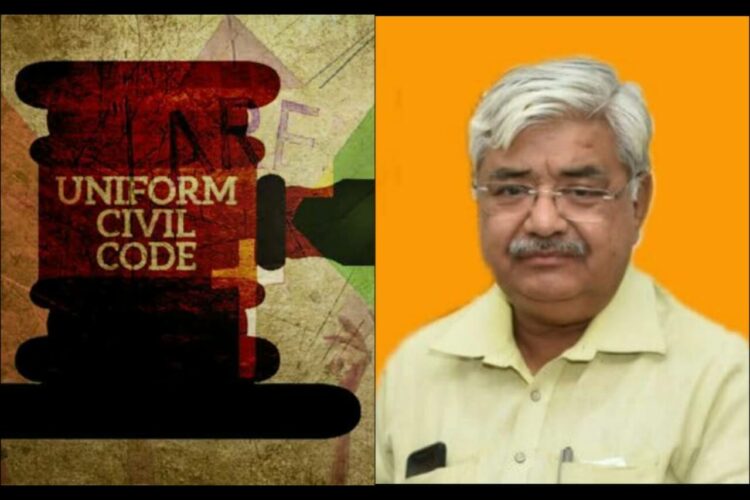The Central Governing Council meeting of the Vishwa Hindu Parishad (VHP) concluded in Raipur, Chhattisgarh on June 24. In the meeting, VHP welcomed the reference to the ‘Uniform Civil Code’ (UCC) to the Law Commission of India. The organisation wants the UCC to be enacted as soon as possible throughout the country.
Alok Kumar, the Central Working President of VHP in the meeting said that it is a matter of satisfaction that the Commission has invited views from all stakeholders on this subject. The UCC should be enacted after obtaining and considering suggestions of all shades of Bhartiya Society soon.
He added, Article 44 of the Constitution ‘directs’ all Governments “to secure a Uniform Civil Code for the citizens throughout the territory of India”.
Talking about the delayed enactment of the law, Kumar sadded, that it is a matter of regret that the MPs and MLAs who take oath of “bearing true faith and allegiance to the Constitution of India” have in these 73 years of the Constitution failed to bring UCC for all citizens of Bharat.
Referring to the judgement of the Supreme Court, Kumar said, the Supreme Court of India in the case of Sarla Mudgal emphasized the need to enact the UCC at the earliest. Many High Courts have repeatedly insisted upon the necessity of UCC. The Court reminded that under Article 51A, it is the Fundamental Duty of all citizens “to promote harmony and the spirit of common brotherhood amongst all the people of India transcending religious diversities”.
In Bharat, all citizens are governed by common laws including criminal Laws, property, contract and commercial laws. There is no reason as to why the family laws should remain the only exception, he added.
Talking about the vulnerable condition of women in some religious communities he added, it can not be disputed that the personal laws of a religious community seriously violate the dignity, equality and other rights of the women. Their provisions about polygamy, divorce and successions are some 1400 years behind the modern times. Such practices breach the rights of women granted by the Constitution. Similarly, the rights of children do also need to be protected under the UCC.
He expressed hope that the Law Commission shall prepare the draft of UCC at an early date synthesizing good practices from various sections of Society and in accord with the Constitutional values.
Notably, The 22nd Law Commission of India recently sought the views of religious organisations, NGOs and the public on the issue of a Uniform Civil Code (UCC).
Uniform Civil Code refers to a common set of laws that are applicable to all the citizens of India with regard to marriage, divorce, inheritance, adoption and succession. These laws are applicable to the citizens of India irrespective of religion, gender and sexual orientation.
Constituent Assembly was set up to frame our Constitution in 1946 in Independent India which consists of both types of members: those who wanted to reform the society by adopting the Uniform Civil Code like Dr. B. R Ambedkar and others was basically Muslim representatives who perpetuate personal laws.
Also, the proponents of the Uniform Civil Code were opposed by the minority communities in the Constituent Assembly. As a result, only one line is added in the Constitution under Article 44 in Part IV of DPSP (Directive Principles of State Policy).
It is noteworthy that, after Independence, the State of Goa adopted the Portuguese Civil Code which enforced a UCC for all its citizens. Under this code, a married couple holds joint ownership in all assets owned and acquired by each spouse. Even if Parents can’t disinherit their children entirely at least half of the property must be passed on to them. Muslim persons who have registered their marriage in Goa are not allowed to practice polygamy.
In the lead-up to the Assembly elections, Union Home Minister, Amit Shah announced that a Uniform Civil Code will be put into effect in Himachal Pradesh if the Bharatiya Janata Party (BJP) wins the Assembly elections. The BJP-led state government in Uttrakhand has already established a committee to implement a Uniform Civil Code for the state.




















Comments